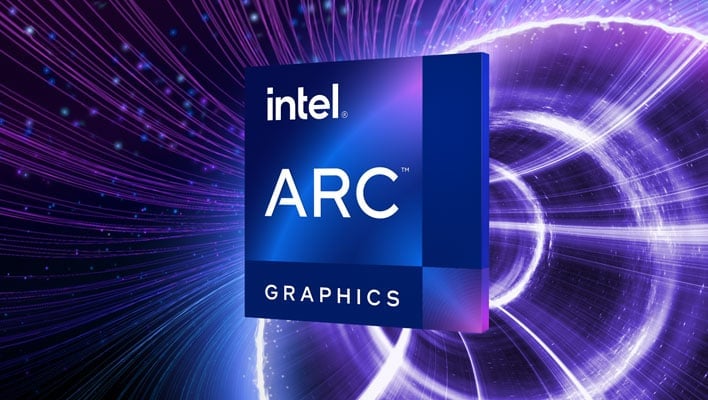
In case you still carried any doubts, Intel’s second-generation discrete graphics products, codenamed “Battlemage,” are very real and absolutely still on the way—likely later this year. As proof, allow us to show you the latest leak: a boot log from a system in the Intel GFX Continuous Integration group that clearly lists itself as having “BATTLEMAGE” graphics.
The salient portion of the Linux boot log starts at 5.393477 seconds, where the “xe” driver starts loading and spitting out messages to the log. Right there, for its second startup message: “Found BATTLEMAGE”. The messages continue, identifying the adapter as a discrete GPU named “Xe2_LPG / Xe2_HPG“.

To be honest, most of the boot log is indecipherable gibberish that could only make sense to a driver developer. However, the person who shared the boot log, gaav87 on the Anandtech forums, pointed out a few key details that we can glean from the spew of kernel messages. The card has 12GB of onboard memory clocked at 19 GT/s giving a total bandwidth of 456 GB/second. That means that the memory interface is 192-bit, not 256-bit.
Intel never launched a 12GB Arc GPU for the desktop, but this is definitely a desktop card, because the CPU is listed as a Core i5-13400 and the board is reported as having three DisplayPort connectors and an HDMI port.

Some people have theorized that a listing of “GuCs” in the log equates to an equivalent number of Xe2-Cores, but the leaker specifically says that the GPU in question—the GPU on which Intel GFX CI is doing its build testing—is BMG-X2 with 20 Xe2-Cores, yet it apparently only has five cores active, while the rest are “‘fused’ off”.
He goes over a list of known Battlemage chips, two of which may have been scrapped during development. It’s not clear how many different Xe2 discrete GPUs Intel is preparing for the Battlemage launch.
There are a couple of different clock speeds mentioned for this Battlemage GPU. We typically don’t pay much attention to clock rates for early leaks like this as they often don’t represent final clock scaling, and both of the clock rates found in the boot log are quite low, at 1.5 GHz and 1.8 GHz. Intel’s extant Alchemist GPUs already run much higher clocks than this (as high as 2550 MHz.)
However, replying to another user, gaav87 says that the 1.8 GHz listed in the log is indeed the current base clock for the GPU, and that even with that handicap, the performance is still already +50% over an Arc A750. He notes that this still puts it behind a Radeon RX 6800 and GeForce RTX 3070 Ti, but depending on the pricing and power consumption this could be an awesome little entry-level GPU.
